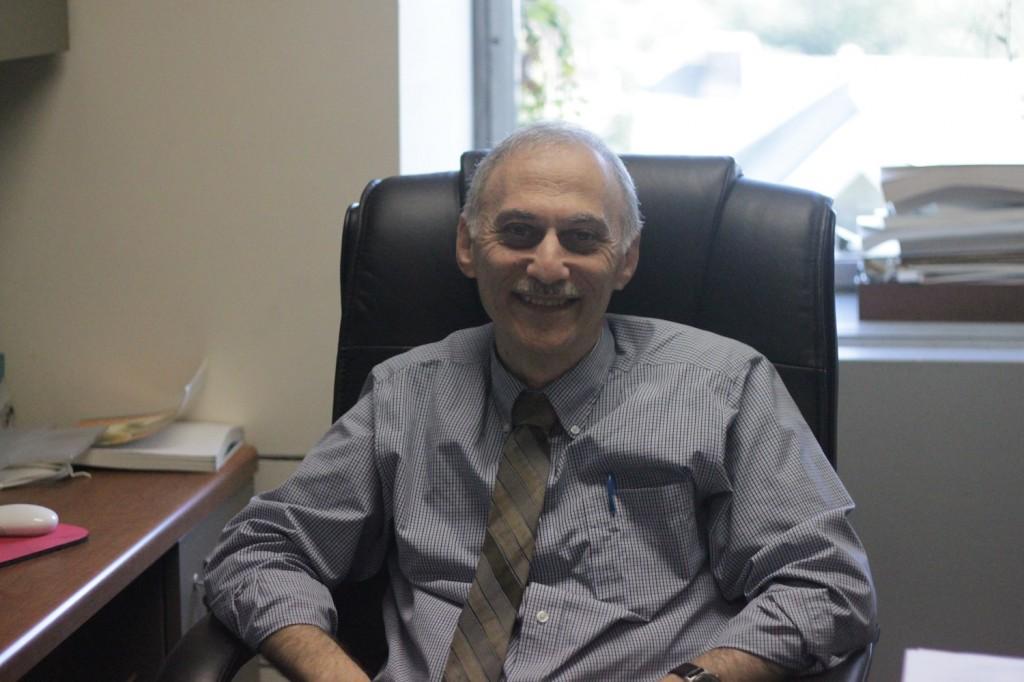Music Professor Receives Kurt Weill Book Prize For Novel
October 19, 2011

Larry Stempel, a professor of music at Fordham University at Rose Hill, was honored with the Kurt Weill Book Prize for his book, “Showtime,” on Oct. 12.
Professor Stempel will be teaching a history course based around theatre next spring at Fordham College at Lincoln Center (FCLC) and will use “Showtime” as the main text for the course.
The Kurt Weill Foundation for Music, established in 1990, awards scholarly work in the disciplines of music, theatre, dance, literary criticism, and history every two years. The award also includes a 5,000 cash prize.
“Showtime” is a history of the Broadway musical theatre dating back to the 18th century.
In a review of “Showtime” in the Washington Post, critic Lloyd Rose refers to Stempel’s approach to establishing the difference between 18th century and modern theatre as “painstaking genius.” Professor Stempel had worked on his novel close to 30 years before finally releasing it in 2010.
Observer: What is the synopsis of “Showtime”?
Larry Stemple: The book is a comprehensive history that goes over in rough chronological order from the 18th century, when the Europeans first came over and did a little musical bits for entertainment, to the present day.
Observer: What influenced you to start the book?
LS: I had been writing music all along, a lot of it was far out electronic music, but [then] I joined Broadcast Music, Inc. (BMI). [They] had a musical theatre workshop that I joined in the early 1970’s as a composer. They hooked me up with a lyric writer and we started writing musicals. And as I got into the nitty gritty of it, I realized I didn’t know much of the past of where musicals came from. I started looking into it and the more I did, the more fascinated I become. I then realized there was no book that had really looked at primary documents or had approached it from a scholarly perspective. There was a lot of general books, some journalistic, that looked at the whole history of musical shows but none of them that seemed to do it systemically and comprehensively. So I started, not realizing how many years it would take, to get through this.
Observer: Why do you think it took so long?
LS: It’s a combination of things. Number one, there were very little other scholars work that I could rely on so I really had to go to primary sources, that sometimes didn’t even exist. The other thing was the nature of the beast I was studying, which is not documents but live performances. So you’re looking for the traces of live performances and sometimes they don’t exist either. Often times you have to fall back on newspaper reviews that you don’t know what the songs were, what the lyrics were, what the story was about. To give an example, a show that was a break through show called “The Black Crook” from 1866. Everybody mentions it but very few people have actually looked at the text, I finally got a hold of the text and read it, but nobody actually knows what the music was. There were so many revivals of it that a lot of the music from the revivals have been attributed to the original production. As far as I can find, I still don’t know really what the specific music from the original production. Another thing is “how did it look like?” There were no photographs at all. There were a couple of studio shots from the revivals but you don’t know what it looked like on stage. I came across in the memoirs of none other than Mark Twain, who happened to be traveling through New York in 1866 and saw this show. He writes a description that is as vivid as you can imagine. He describes what is awe inspiring about this production. I just happened to be reading Mark Twain! The whole history was put together like this. As you get to the 20th century, you’ve got more and more material. Even then, some of the shows changed so it’s tough to get a hold of what a show was- what it looked like, what it sounded like. Observer: Describe the class you’re teaching at LC next semester.
LS: Well, the class will use the book [“Showtime”] as a textbook. In the course of the class, I hope we also will analyze the components: What makes a lyric a lyric and how the notion of what a lyric for a song has changed over time and how it works differently from a show from the 1920s as opposed to a show in the 1950s and from today. It’s really a history class but it also focuses on the elements that goes into making a show. We look at lyrics , we look at the music, and we look at writing a play that lends itself for songs. And what I’m hoping to do is to try and link that to some show that we will study and that we will actually see. I’ll take advantage of New York City.
Observer: When did you find out about the Book Prize?
LS: I just got an email from Carolyn Webber the first week of October. I’m delighted and grateful. I have a project related I’m working on – a spin off. I want to put together an ethology of primary documents that we can look the history of theatre by reading exactly what people wrote. It’ll be the actual voices of the people who actually created these or saw them in performances so getting a cultural perspective on the musical from the “horses mouth” so to speak.









